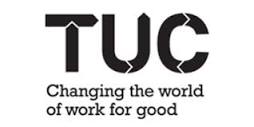The press release issued by the TUC on 14 December 2022.
- Judicial review of “anti-worker” regulations which “threaten the right to strike” expected to be heard from late March
- Move is a “major blow” to government attempts to undermine the right to strike for better pay and conditions
The High Court has granted permission for a legal challenge – brought by eleven trade unions, coordinated by the TUC and represented by Thompsons Solicitors LLP – to protect the right to strike.
The unions – ASLEF, BFAWU, FDA, GMB, NEU, NUJ, POA, PCS, RMT, Unite and Usdaw – have taken the case against the government’s new regulations which allow agency workers to fill in for striking workers.
The challenge will be heard along with separate legal cases launched by TUC-affiliated unions UNISON and NASUWT against the government’s agency worker regulations, which have also been given the green light by the High Court. A hearing will be held from late March onwards.
The unions come from a wide range of sectors and represent millions of workers in the UK.
The TUC says the move is a “major blow” to government attempts to undermine workers’ right to strike for better pay and conditions.
With industrial action taking place across the economy after years of declining real pay and attacks on working conditions, reports suggest the government is considering new ways to restrict workers’ right to strike.
In addition to the agency worker regulations brought in last summer, ministers are already pushing through legislation on minimum service levels in transport – with the bill due for its second reading in the new year.
In threatening the right to strike, the TUC has accused the government of attacking a fundamental British liberty and making it harder for working people to bargain for better pay and conditions in the middle of a cost of living crisis.
Unlawful agency worker regulations
The unions argue that the regulations are unlawful because:
- The then Secretary of State for business failed to consult unions, as required by the Employment Agencies Act 1973.
- They violate fundamental trade union rights protected by Article 11 of the European Convention on Human Rights.
The change has been heavily criticised by unions, agency employers, and parliamentarians.
The TUC has warned these new laws will worsen industrial disputes, undermine the fundamental right to strike and could endanger public safety if inexperienced agency staff are required to fill safety critical roles.
The Recruitment and Employment Confederation (REC), which represents suppliers of agency workers, described the proposals as “unworkable”.
The Lords Committee charged with scrutinising the legislation said “the lack of robust evidence and the expected limited net benefit raise questions as to the practical effectiveness and benefit” of the new laws.
The TUC recently reported the UK government to the UN workers’ rights watchdog, the International Labour Organization (ILO), over the recent spate of anti-union and anti-worker legislation and proposals, including the government’s agency worker regulations, which it says are in breach of international law.
TUC General Secretary Frances O’Grady said:
“The right to strike is a fundamental British liberty. But this government seems hellbent on attacking it at every opportunity.
“Threatening this right tilts the balance of power too far towards employers. It means workers can’t stand up for decent services and safety at work – or defend their jobs and pay.
“With inflation above an eyewatering 11%, ministers are shamelessly falling over themselves to find new ways to make it harder for working people to bargain for better pay and conditions.
“And these attacks on the right to strike are likely illegal. Ministers failed to consult with unions, as the law requires. And restricting the freedom to strike is a breach of international law.
“That’s why unions are coming together to challenge this change in the courts.
“Working people are suffering the longest and harshest wage squeeze in modern history. They need stronger legal protections and more power in the workplace to defend their living standards – not less.”
Richard Arthur, Head of Trade Union Law at Thompsons Solicitors, which represents the TUC-coordinated unions, said:
“This is a timely reminder that the government is not above the law when it tries to restrict the rights of working people to take industrial action.
“The Court has agreed with the trade unions that the government’s decision-making should be scrutinised against UK and international legal standards at a hearing to take place from late March onwards.”
